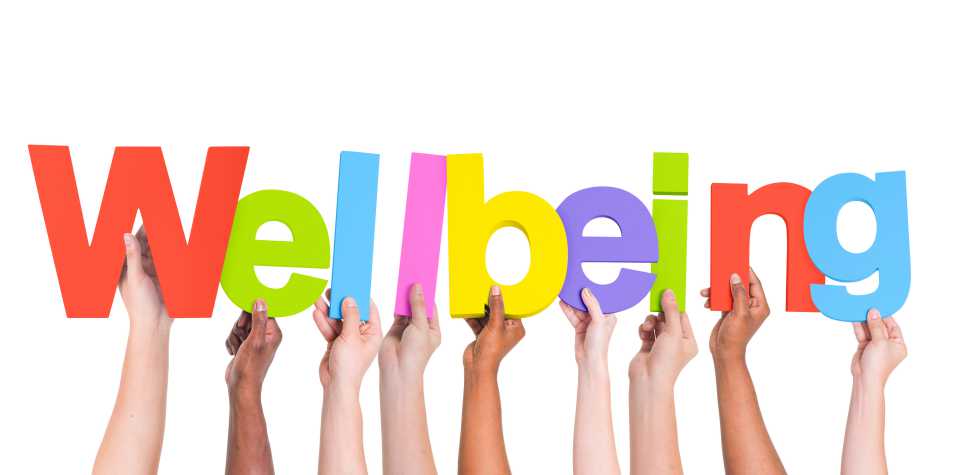What factors contribute to good mental health? Everyone has the potential to achieve good mental health, but it can be hard to do on your own. Fortunately, five key factors can help you to attain the emotional and psychological stability necessary for a healthy, fulfilled life. In this guide, we’ll cover the five elements necessary for achieving optimal mental well-being and how you can work towards incorporating them into your life.
The 5 Factors That Contribute To Good Mental Health
From getting enough sleep to maintaining meaningful relationships, we’ll provide practical strategies for building a strong mental health foundation. By understanding these five essential components and committing to practicing them, you can work towards creating a life filled with joy, satisfaction, and emotional balance.
1. Eating a Balanced Diet
A healthy diet can profoundly impact your mood, energy levels, and sense of well-being. Eating a balanced diet filled with nutritious, whole foods can help to reduce anxiety, improve your mood, and increase feelings of satisfaction, contentment, and self-worth.
Food also plays a key role in our levels of energy and productivity, which can be another aspect of mental health. Because of the direct connection between diet and mental health, many experts recommend that people struggling with mental health issues should consider their diet as part of their treatment plan. If you suspect that a less-than-ideal diet impacts your mental health, change your eating habits.

2. Getting Enough Sleep
Getting enough sleep is important not only for physical health but also for mental health. In fact, research shows that sleep deficiency can contribute to mental disorders and worsen existing mental health conditions.
Sleep deficiency can also increase your risk of accidents and injury, making it important for more than just your psyche. The National Sleep Foundation advises 7–9 hours of sleep for adults. If you struggle to accomplish this objective, there are ways to obtain more sleep.
Begin by creating a sleep-friendly environment by minimizing sources of light and sound in your bedroom (e.g., installing blackout curtains, turning off electronics, and keeping your room as quiet as possible). You can also take short naps during the day to catch up on lost sleep.
Related Article: Dementia and REM Sleep Disorder
3. Exercise and Physical Activity
Many mental health issues, such as anxiety, depression and schizophrenia, have been found to improve with regular physical activity.
Physical activity can benefit your mental health in a few ways. For one thing, it can help to regulate your mood, reducing feelings of anxiety and depression while also increasing feelings of happiness and satisfaction. Physical activity also helps to improve your sleep, which makes it an even more effective tool for improving your mental health.
Whatever activity you choose to engage in, make sure that you are doing it regularly. Experts recommend moderate-to-vigorous physical activity for at least 150 minutes per week. If you are new to exercise, it can be helpful to start slowly. As you become more comfortable with regular physical activity, you can gradually increase the level of intensity.
For maximum mental health benefits, engaging in physical activity while experiencing a positive mental state is also important. In other words, don’t exercise when you are feeling depressed or anxious. Instead, try to find a way to make physical activity enjoyable, even if you do it alone.
Related Article: Programs for Troubled Teens
4. Pursuing Meaningful Relationships
The quality of your relationships can significantly impact your mental health. In fact, research shows that social isolation may be as harmful to your health as smoking 15 cigarettes a day. Loneliness, which can exacerbate mental health problems like anxiety and depression, is mitigated by having meaningful relationships with other people.
Still trying to figure out where to start? Consider finding a club or other social group in your area. You can also get involved in an online support group. It is important to remember that different relationships are beneficial in different ways. For example, having a romantic partner can be helpful for your mental health, but only if the relationship is healthy and positive. On the other hand, family members and friends can be great for building your social network, but may be less effective at reducing feelings of loneliness.
5. Stress Management for Good Mental Health
Our bodies are equipped with a natural, biological response to stressful situations known as the fight-or-flight response. In the past, the fight-or-flight response helped humans physically and mentally survive in a dangerous, difficult world. Today, while we still occasionally have to run from (or fight against) wild animals, the majority of stress in our lives comes from psychological sources, such as work and relationships.
Unfortunately, while the fight-or-flight response is an effective biological tool, it also damages our bodies, especially when activated too frequently or for too long. When we find ourselves in stressful situations, it is important to remember that the fight-or-flight response is a helpful but short-lived biological response. By remaining mindful of the fight-or-flight response, you can better manage the sources of stress in your life.
As you become more aware of your response to stressful situations, you can work to find healthier ways to respond to them. This may include practicing mindfulness, engaging in relaxation techniques, or seeking professional help from a mental health professional.
Negative self-talk can be damaging to mental health, so it’s important to practice positive self-talk and self-compassion.
Overview
Achieving good mental health is a challenging and quick process. It is important to remember that achieving optimal mental health is not a one-time thing but a lifelong process. That being said, there are many ways to build your mental health and reduce the impact of mental health conditions. The five factors we have covered in this article are just a few strategies you can use to improve your mental health.
By making small changes to your diet, sleep schedule, exercise routine, social network, and stress management techniques, you can work towards creating a life filled with emotional and psychological stability. With the right combination of strategies, you can prioritize your mental health and live a healthy, happy, and fulfilling life.
Related Article: Free Therapy in NYC
